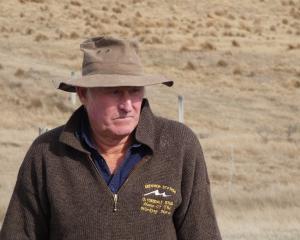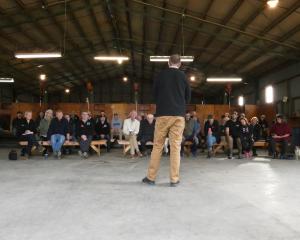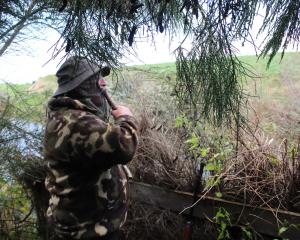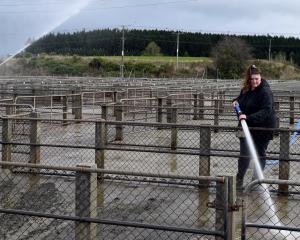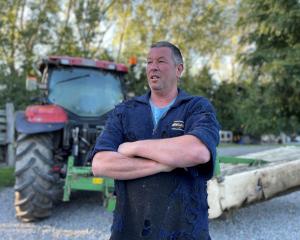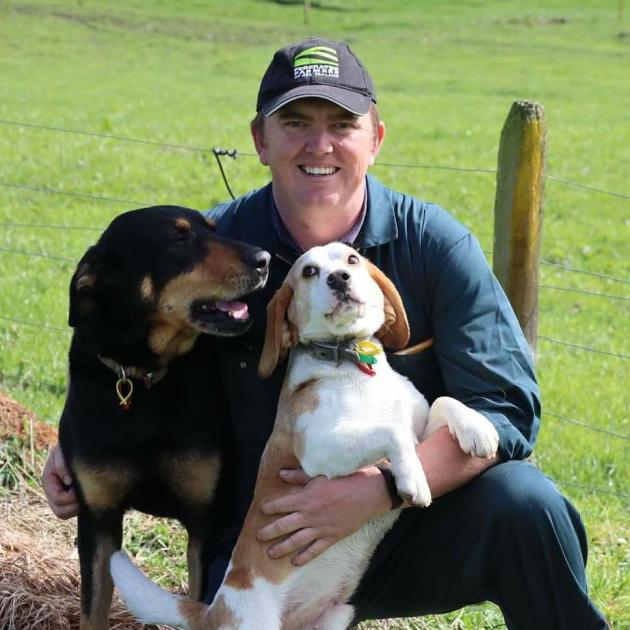
Federated Farmers’ latest survey shows the rural mood has reached positive territory since last year’s lowest point in the survey’s 15-year history.
National president Wayne Langford said it was good to see the first improvement in confidence for some time.
"I want to be clear that it’s only a slight improvement and it’s coming off a very low base. I wouldn’t say farmers are feeling more confident yet — they’re just feeling less unconfident. Confidence is no longer going backwards, but it’s still in the gutter."
Mr Langford said farmers were struggling with the weight of high inflation, high interest rates and lower commodity prices on their profitability.
Most farmers continue to feel general economic conditions were bad, and most were still making a loss. However, they expected conditions to improve over the next year.
Mr Langford said the turnaround was because inflation was slowing, commodity prices appeared at least for dairy to have stabilised and the belief that high interest rates had hopefully peaked.
"We’ve also seen a change of Government in the last six months, with a real commitment to roll back some of the more impractical and expensive regulation that’s undermined farmer confidence."
This view lines up with the results of Rabobank’s confidence survey showing farmer sentiment has risen strongly from a low level for the second quarter year in a row.
The bank found more farmers believed the performance of the agri-economy would worsen in the coming year than those expecting it to improve.
However, confidence is much higher than in September last year when it slumped to a 20-year low.
The survey found 38% of farmers were expecting conditions in the broader agricultural economy to worsen over the next year — down from 58% last quarter — with 22% expecting conditions to improve, from 11% previously. The remaining 39% expected conditions to stay the same.
Chief executive Todd Charteris said it was encouraging to see confidence improving even if it was well back on where people would like to see it.
He said government policy was the major factor encouraging those farmers with an optimistic outlook.
Rabobank has lifted its milk price forecast for the 2023/24 season by five cents to $7.80 a kilogram of milksolids as a result of bright spots on the horizon for improved global dairy prices.
Senior agricultural analyst Emma Higgins said milk supply growth continued to struggle in key exporting regions.
Normally a bullish response would arrive after half a year of weaker supply, as happened when record prices in 2022 followed lower output the year before.
"But the supply and demand balance is different this time with lower milk production relatively neutralised by sluggish global demand in recent months," she said.
Ms Higgins said there was increasing evidence that dairy demand was on the upswing.
She said the bank’s expectation was for slow but steady dairy commodity price gains this year.
Mr Langford said he was optimistic the cautious optimism among farmers was the start of a steady rise in confidence.
"I think we will see confidence continue to lift in the year ahead, helped by an easing of unnecessary regulatory pressure on farmers. Federated Farmers is working hard with the new Government to reduce that burden, like fixing unworkable freshwater rules. It’s all about cutting red tape, making compliance on-farm easier, and getting our primary sector humming again."
The survey identified farmers’ biggest concerns now as debt, interest and banks; farmgate and commodity prices; regulation and compliance costs; and climate change policy and the ETS.
Mr Langford said he had spoken to a lot of farmers who were getting work off-farm to make ends meet as a result of higher interest rates.
Only a few of the farmers surveyed expected their debt to increase over the year, compared with 14% feeling this way last July.


